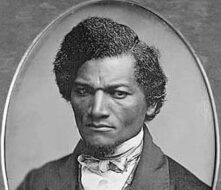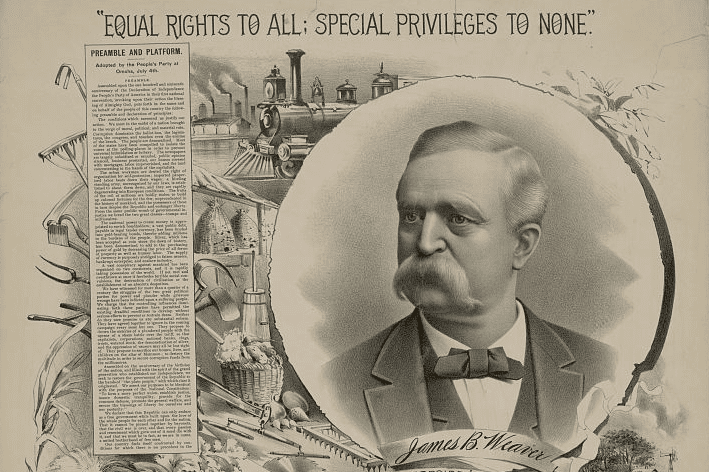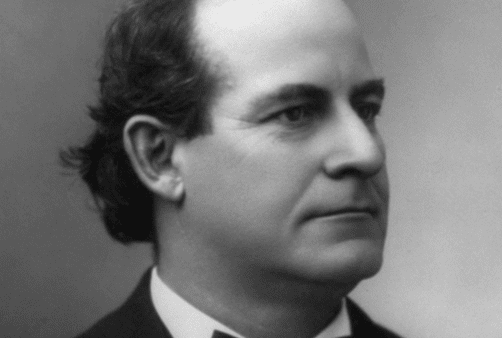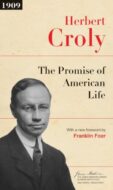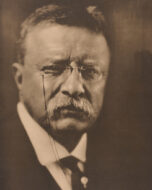

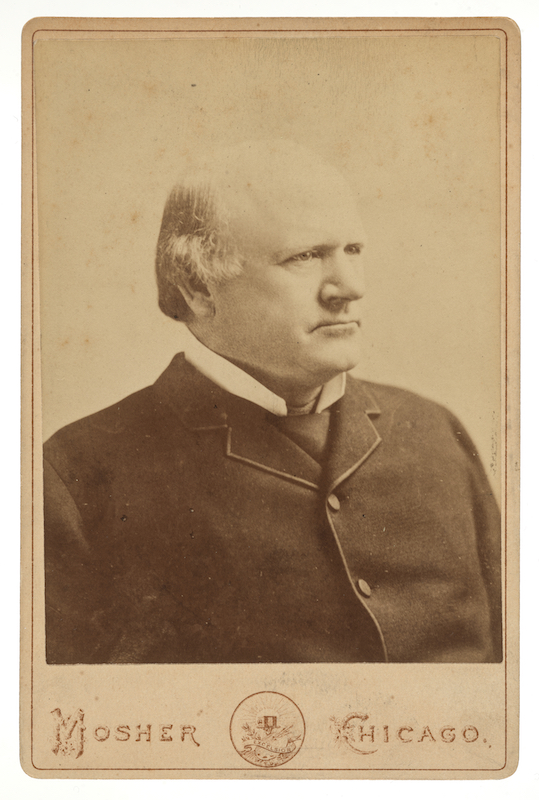
No related resources
Introduction
Plessy v. Ferguson involved the Separate Car Act enacted in Louisiana in 1890. The act required that black people and white people travel in separate railway cars. Homer Plessy challenged the act with support from the Comité des Citoyens, a group of New Orleans citizens who hoped to repeal the Separate Car Act. Plessy was seven-eighths Caucasian but technically black under Louisiana law. The Comité des Citoyens asked Plessy to sit in the “whites only” portion of the train, which resulted in Plessy’s arrest. The case eventually made its way to the Supreme Court, with Plessy’s lawyers arguing that the Separate Car Act violated the Thirteenth and Fourteenth Amendments.
The Supreme Court’s decision is justifiably infamous for its approval of the separate but equal doctrine and Justice John Marshall Harlan’s (1833–1911) strong endorsement of racial equality in his lone dissent. The majority opinion, written by Justice Henry Billings Brown (1836–1913), ruled that the state law was constitutional and not in violation of the Thirteenth or Fourteenth Amendment. In particular, he claimed that the Fourteenth Amendment was only created to enforce political as opposed to social equality, and that Plessy was asking the Court for the latter. He also speciously declared that the law was not designed to stamp “the colored race with a badge of inferiority.” Justice Harlan’s dissenting opinion objected to both claims but in particular argued that the majority was being willfully dishonest about the purposes of the law.
Often forgotten in this case is that the decision also included a significant discussion about the appropriate role of the courts. The excerpt below focuses on this issue. Plessy’s attorney argued that if this form of segregation were constitutionally permissible, then other forms must be as well, such as segregation based on hair color or nationality. Justice Brown replied to this claim that the Court had the authority to strike down what it regarded as unreasonable public policy. Justice Harlan disagreed, arguing that when courts make judgments based on policy, they have exceeded their proper role. Judges are to decide whether laws are constitutional, not whether they are good policy.
Source: 163 US 537 (1896), https://www.law.cornell.edu/supremecourt/text/163/537.
MR. JUSTICE BROWN, after stating the case, delivered the opinion of the court.
. . .It is also suggested by the learned counsel for the plaintiff in error that the same argument that will justify the state legislature in requiring railways to provide separate accommodations for the two races will also authorize them to require separate cars to be provided for people whose hair is of a certain color, or who are aliens, or who belong to certain nationalities, or to enact laws requiring colored people to walk upon one side of the street, and white people upon the other, or requiring white men’s houses to be painted white, and colored men’s black, or their vehicles or business signs to be of different colors, upon the theory that one side of the street is as good as the other, or that a house or vehicle of one color is as good as one of another color. The reply to all this is that every exercise of the police power1 must be reasonable, and extend only to such laws as are enacted in good faith for the promotion of the public good, and not for the annoyance or oppression of a particular class. . . .
So far, then, as a conflict with the Fourteenth Amendment is concerned, the case reduces itself to the question whether the statute of Louisiana is a reasonable regulation, and with respect to this there must necessarily be a large discretion on the part of the legislature. In determining the question of reasonableness, it is at liberty to act with reference to the established usages, customs, and traditions of the people, and with a view to the promotion of their comfort, and the preservation of the public peace and good order. Gauged by this standard, we cannot say that a law which authorizes or even requires the separation of the two races in public conveyances is unreasonable, or more obnoxious to the Fourteenth Amendment than the acts of Congress requiring separate schools for colored children in the District of Columbia, the constitutionality of which does not seem to have been questioned, or the corresponding acts of state legislatures.
We consider the underlying fallacy of the plaintiff’s argument to consist in the assumption that the enforced separation of the two races stamps the colored race with a badge of inferiority. If this be so, it is not by reason of anything found in the act, but solely because the colored race chooses to put that construction upon it. The argument necessarily assumes that if, as has been more than once the case and is not unlikely to be so again, the colored race should become the dominant power in the state legislature, and should enact a law in precisely similar terms, it would thereby relegate the white race to an inferior position. We imagine that the white race, at least, would not acquiesce in this assumption. The argument also assumes that social prejudices may be overcome by legislation, and that equal rights cannot be secured to the negro except by an enforced commingling of the two races. We cannot accept this proposition. If the two races are to meet upon terms of social equality, it must be the result of natural affinities, a mutual appreciation of each other’s merits, and a voluntary consent of individuals. . . . Legislation is powerless to eradicate racial instincts or to abolish distinctions based upon physical differences, and the attempt to do so can only result in accentuating the difficulties of the present situation. If the civil and political rights of both races be equal, one cannot be inferior to the other civilly or politically. If one race be inferior to the other socially, the Constitution of the United States cannot put them upon the same plane. . . .
The judgment of the court below is, therefore, Affirmed.
MR. JUSTICE HARLAN, dissenting.
. . .It was said in argument that the statute of Louisiana does not discriminate against either race, but prescribes a rule applicable alike to white and colored citizens. But this argument does not meet the difficulty. Everyone knows that the statute in question had its origin in the purpose not so much to exclude white persons from railroad cars occupied by blacks as to exclude colored people from coaches occupied by or assigned to white persons. Railroad corporations of Louisiana did not make discrimination among whites in the matter of accommodation for travelers. The thing to accomplish was, under the guise of giving equal accommodation for whites and blacks, to compel the latter to keep to themselves while traveling in railroad passenger coaches. No one would be so wanting in candor as to assert the contrary. The fundamental objection, therefore, to the statute is that it interferes with the personal freedom of citizens. . . .
It is one thing for railroad carriers to furnish, or to be required by law to furnish, equal accommodations for all whom they are under a legal duty to carry. It is quite another thing for government to forbid citizens of the white and black races from traveling in the same public conveyance, and to punish officers of railroad companies for permitting persons of the two races to occupy the same passenger coach. If a state can prescribe, as a rule of civil conduct, that whites and blacks shall not travel as passengers in the same railroad coach, why may it not so regulate the use of the streets of its cities and towns as to compel white citizens to keep on one side of a street and black citizens to keep on the other? Why may it not, upon like grounds, punish whites and blacks who ride together in streetcars or in open vehicles on a public road or street? Why may it not require sheriffs to assign whites to one side of a courtroom and blacks to the other? And why may it not also prohibit the commingling of the two races in the galleries of legislative halls or in public assemblages convened for the consideration of the political questions of the day? Further, if this statute of Louisiana is consistent with the personal liberty of citizens, why may not the state require the separation in railroad coaches of native and naturalized citizens of the United States, or of Protestants and Roman Catholics?
The answer given at the argument to these questions was that regulations of the kind they suggest would be unreasonable, and could not, therefore, stand before the law. Is it meant that the determination of questions of legislative power depends upon the inquiry whether the statute whose validity is questioned is, in the judgment of the courts, a reasonable one, taking all the circumstances into consideration? A statute may be unreasonable merely because a sound public policy forbade its enactment. But I do not understand that the courts have anything to do with the policy or expediency of legislation. . . .
The white race deems itself to be the dominant race in this country. And so it is in prestige, in achievements, in education, in wealth, and in power. So, I doubt not, it will continue to be for all time if it remains true to its great heritage and holds fast to the principles of constitutional liberty. But in view of the Constitution, in the eye of the law, there is in this country no superior, dominant, ruling class of citizens. There is no caste here. Our Constitution is color-blind, and neither knows nor tolerates classes among citizens. In respect of civil rights, all citizens are equal before the law. The humblest is the peer of the most powerful. The law regards man as man, and takes no account of his surroundings or of his color when his civil rights as guaranteed by the supreme law of the land are involved. It is therefore to be regretted that this high tribunal, the final expositor of the fundamental law of the land, has reached the conclusion that it is competent for a state to regulate the enjoyment by citizens of their civil rights solely upon the basis of race.
In my opinion, the judgment this day rendered will, in time, prove to be quite as pernicious as the decision made by this tribunal in the Dred Scott case.2 It was adjudged in that case that the descendants of Africans who were imported into this country and sold as slaves were not included nor intended to be included under the word “citizens” in the Constitution, and could not claim any of the rights and privileges which that instrument provided for and secured to citizens of the United States; that, at the time of the adoption of the Constitution, they were “considered as a subordinate and inferior class of beings, who had been subjugated by the dominant race, and, whether emancipated or not, yet remained subject to their authority, and had no rights or privileges but such as those who held the power and the government might choose to grant them.”
The recent amendments of the Constitution, it was supposed, had eradicated these principles from our institutions. But it seems that we have yet, in some of the states, a dominant race—a superior class of citizens, which assumes to regulate the enjoyment of civil rights, common to all citizens, upon the basis of race. The present decision, it may well be apprehended, will not only stimulate aggressions, more or less brutal and irritating, upon the admitted rights of colored citizens, but will encourage the belief that it is possible, by means of state enactments, to defeat the beneficent purposes which the people of the United States had in view when they adopted the recent amendments of the Constitution, by one of which the blacks of this country were made citizens of the United States and of the states in which they respectively reside, and whose privileges and immunities, as citizens, the states are forbidden to abridge. Sixty million whites are in no danger from the presence here of eight million blacks. The destinies of the two races in this country are indissolubly linked together, and the interests of both require that the common government of all shall not permit the seeds of race hate to be planted under the sanction of law. What can more certainly arouse race hate, what more certainly create and perpetuate a feeling of distrust between these races, than state enactments which, in fact, proceed on the ground that colored citizens are so inferior and degraded that they cannot be allowed to sit in public coaches occupied by white citizens. That, as all will admit, is the real meaning of such legislation as was enacted in Louisiana. . . .
For the reasons stated, I am constrained to withhold my assent from the opinion and judgment of the majority.
- 1. The police power is the general power of government to protect the health, welfare, safety, and morals of the people. The federal government is a government of enumerated powers and thus does not have the police power. State governments retain this power.
- 2. See Speech on the Dred Scott Decision and Speech at Springfield, Illinois.
Plessy v. Ferguson
May 18, 1896
Conversation-based seminars for collegial PD, one-day and multi-day seminars, graduate credit seminars (MA degree), online and in-person.


















